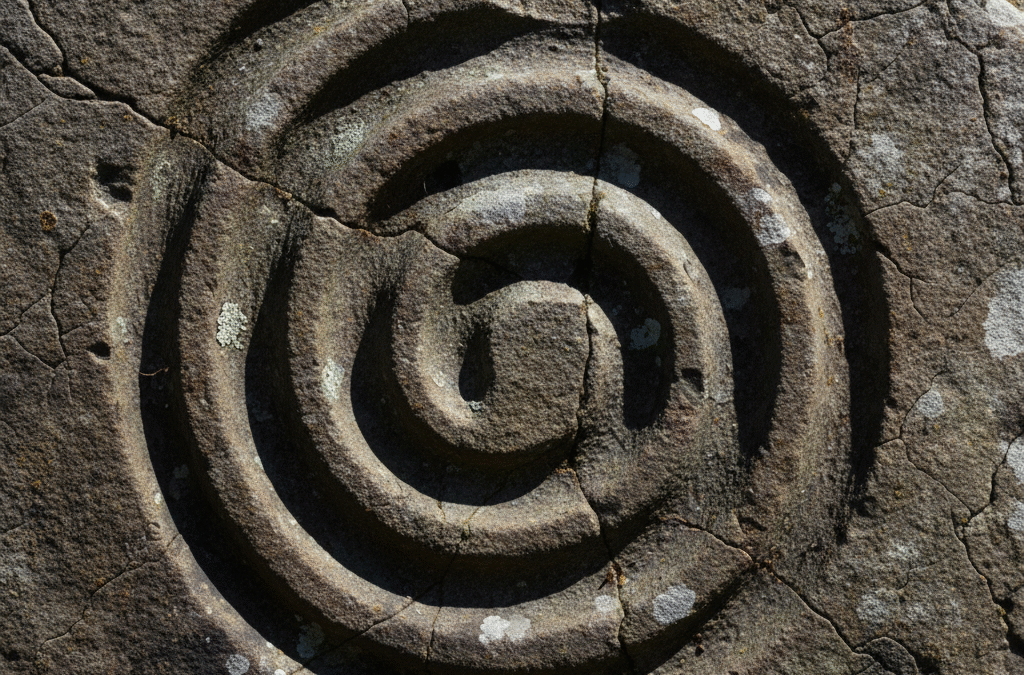Life itself, though, is a cycle. We get up, we eat, we work, we sleep, we rest, and do the very same thing the day after tomorrow. Generations pass, seasons pass, nations and empires rise and fall, and history over and over and over does the same things, war, injustice, hope, reform. In its earliest form, this circular repeated life is frustrating, even oppressive. If it all just goes round and round and round in circles, then what is the point? Does repetition drain life from meaning and leave us performing a play already performed through an infinite number of times before? Or perhaps it’s the same which gives our lives such depth?
Nietzsche was brave enough to take the extreme path of “eternal recurrence” and of an exercise of imagination of living the same life an infinite number of times. Imagine that all the joy, all the suffering, all the mistakes, all the triumphs repeated over and over. Would life conclude then, or would it make us love it more fiercely? For Nietzsche, it was the challenge of imagining how to live so you would confirm eternal recurrence, that if life were to come back again and again into an endless future, you would not regret that you had lived. This text makes the suggestion that repetition gives profundity to meaning by causing us to affirm our lives in entirety.
There is another, though. If it holds true that history repeats itself, then human beings are possibly stuck in cycles of forgetfulness. Wars just keep on repeating because humans remember not the previous war. Oppression repeats because lessons are forgotten. Here, repetition is tragic: we never improve, but just continue round the same old cycles of suffering. Repetition here is not needed, boiling human life down to an echo chamber of mistakes. It makes you wonder if we ever really do improve, or if we’re just going round and round in various tassels.
And even in the mundane repetitions of mundane life, there can be beauty. Think of music. Non-repeating music is cacophony; it is the repeating rhythms, notes, and patterns that strike harmony. Or take rituals, celebrations, traditions, or even habits. They appear repetitive, but they organize our lives, founded on continuity. Birthdays recur each year, but still, they mean something. Repetition here is creating meaning because it roots transitory moments into something more real and fixed.
And then, naturally, there’s the matter of how repetition constructs identity. We aren’t so much what we are by a single thing but by compilations of things. A single nice thing is nice, but several constitute character. A single failure hurts, but trying over and over again to get up makes for resiliency. Repetition, in short, doesn’t so much steal meaning, it creates meaning, piling on experience until it’s the foundation of who we are.
Macrospectively, then, history repeats as spirals, not circles. We return to the same issues, certainly, but never to the same circumstances. Each cycle is different. History echoes the past but never the same. This is a perspective that affirms the thesis that repetition steals and dignifies to an equal extent—it can be maddening in its very sameness, but it can be the same beat upon which humanity sharpens, adjusts, and stumbles towards wisdom, though incrementally.
Or maybe it’s in the way we perceive cycles. If we conceptualize them as enclosures, then repetition will be stifling. But if we can imagine them as potentialities—potentialities for recasting what matters, for building resilience, for listening for resonance of what was and learning—then repetition is a sage teacher. Life may not always move in a straight line, linearly, but perhaps it moves in circles that grow, layer upon layer, into fullness.
Thus do cycles in history and life take away meaning or give meaning? Maybe a little of both. They can trap us in despairing cycles, but they give us rhythm, routine, and the ability to live our lives with fullness. Not whether things repeat, but whether we meet their repetition with resignation, or with the strength to live them again as if they were worth living.
